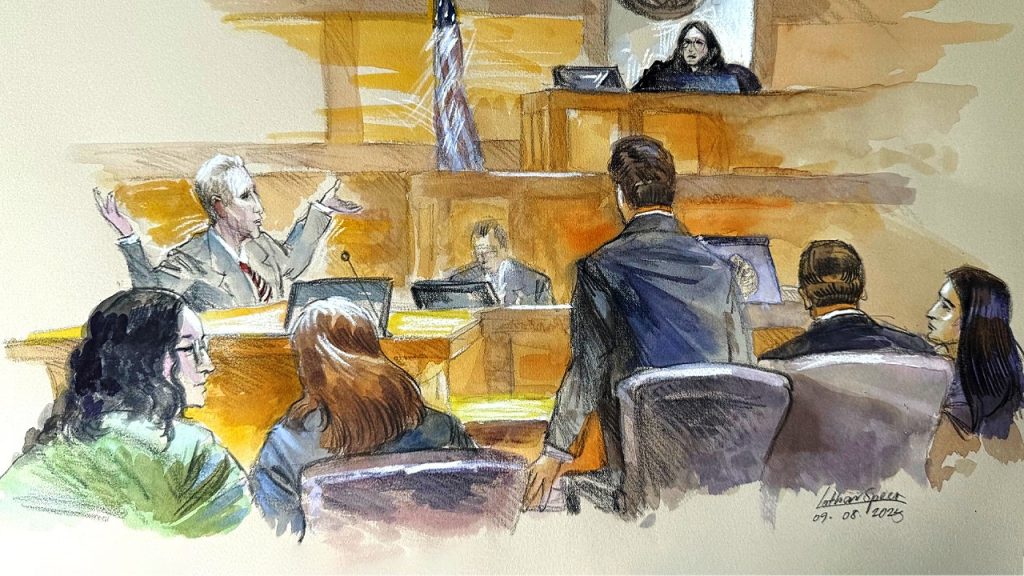Jury Selection Narrows in High-Profile Trump Assassination Attempt Trial
In the quiet coastal town of Fort Pierce, Florida, a tense courtroom drama is unfolding as the federal trial of Ryan Routh takes shape. Routh, who stands accused of attempting to assassinate former President Donald Trump at his West Palm Beach golf club last September, is at the center of a meticulous jury selection process being overseen by U.S. District Judge Aileen Cannon. The proceedings have already produced notable moments, including Judge Cannon’s decision to dismiss a self-proclaimed “MAGA” supporter from the jury pool due to “self-declared bias.” Another potential juror was removed after stating she “only follows God’s law” on her questionnaire. Interestingly, Judge Cannon—herself a Trump appointee—allowed a potential juror who claimed to have had breakfast with Donald and Melania Trump 25 years ago to remain in consideration, determining that this decades-old interaction wouldn’t prevent fair participation in the trial.
The jury selection process, which began Monday and is expected to conclude Wednesday, involves three groups of 60 potential jurors undergoing careful scrutiny by both prosecutors and Routh himself, who has chosen to represent himself without legal counsel. This unusual circumstance has already created some remarkable courtroom moments. During Monday’s session, Routh’s questions for potential jurors veered into unexpected territory, including inquiries about their views on the Gaza conflict, their position on the United States potentially acquiring Greenland, and how they would react if they encountered a turtle in the middle of the road while driving. Judge Cannon promptly dismissed these questions as “politically charged” and irrelevant to the jury selection process, firmly telling Routh, “None of the questions on your list have any bearing whatsoever. They were off base, sir, and have no relevance to jury selection.”
The charges against Routh stem from a chilling incident that prosecutors say was weeks in the planning. On September 15, 2024, Routh allegedly concealed himself in shrubbery near Trump’s golf course, armed with a rifle that he pointed at the former president as he played golf. The assassination attempt was thwarted when a vigilant Secret Service agent spotted Routh and confronted him. According to authorities, Routh briefly aimed his weapon at the agent before abandoning both the gun and his position as Secret Service personnel opened fire. He fled the scene but was later apprehended by the Martin County Sheriff’s Office while traveling on Interstate 95 in a black Nissan Xterra, bringing an end to what could have been a catastrophic event in American political history.
The Justice Department has brought multiple serious charges against Routh, including attempted assassination of a major presidential candidate, possessing a firearm in furtherance of a crime of violence, assaulting a federal officer, being a felon in possession of a firearm and ammunition, and possession of a firearm with an obliterated serial number. These federal charges are compounded by state-level accusations related to terrorism and attempted murder. Routh’s criminal history includes previous felony convictions in North Carolina from 2002 and 2010, adding further complexity to his current legal predicament. Despite the substantial evidence and multiple charges arrayed against him, Routh has maintained his innocence, pleading not guilty to all charges.
The jury selection process aims to identify twelve jurors and four alternates who can approach this politically charged case with impartiality and fairness. This presents a particular challenge in today’s polarized political climate, where strong feelings about former President Trump—both positive and negative—are commonplace. Judge Cannon’s decisions to remove certain potential jurors while retaining others highlight the delicate balancing act required to assemble an unbiased jury for such a high-profile case. The judge’s background as a Trump appointee adds another layer of scrutiny to her handling of the proceedings, though her dismissal of the self-proclaimed Trump supporter demonstrates an apparent commitment to maintaining impartiality in the courtroom.
As the trial prepares to move forward following jury selection, the nation watches with bated breath. The case represents more than just the prosecution of an individual; it symbolizes the fragility of democratic processes and the ever-present threat of political violence in America. Routh’s decision to represent himself, while constitutionally protected, adds an unpredictable element to the proceedings. His unusual line of questioning during jury selection suggests an unconventional defense strategy may be forthcoming. Meanwhile, prosecutors will work to establish that Routh’s actions were a calculated attempt to assassinate a former president and current presidential candidate, an act that strikes at the heart of America’s democratic traditions. Whatever the outcome, the trial will likely serve as a somber reminder of the tensions that continue to divide the nation and the vital importance of upholding the rule of law even in the most politically charged circumstances.


